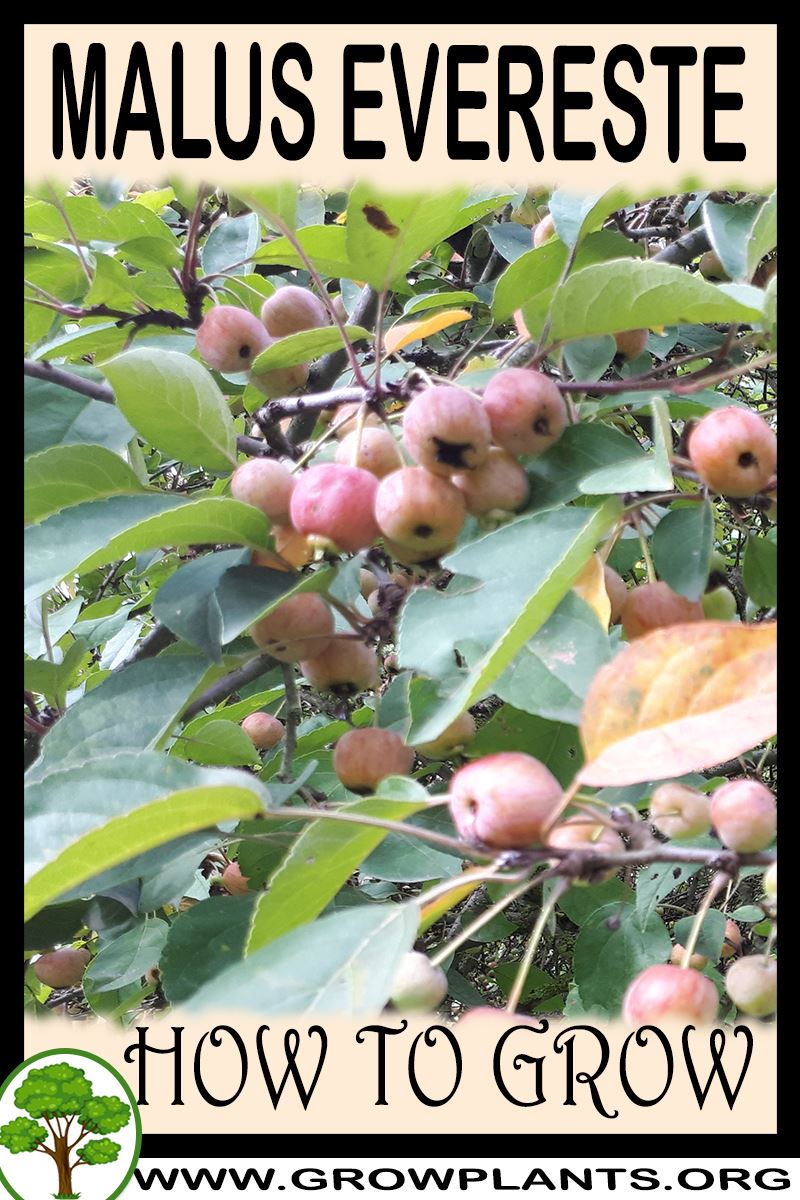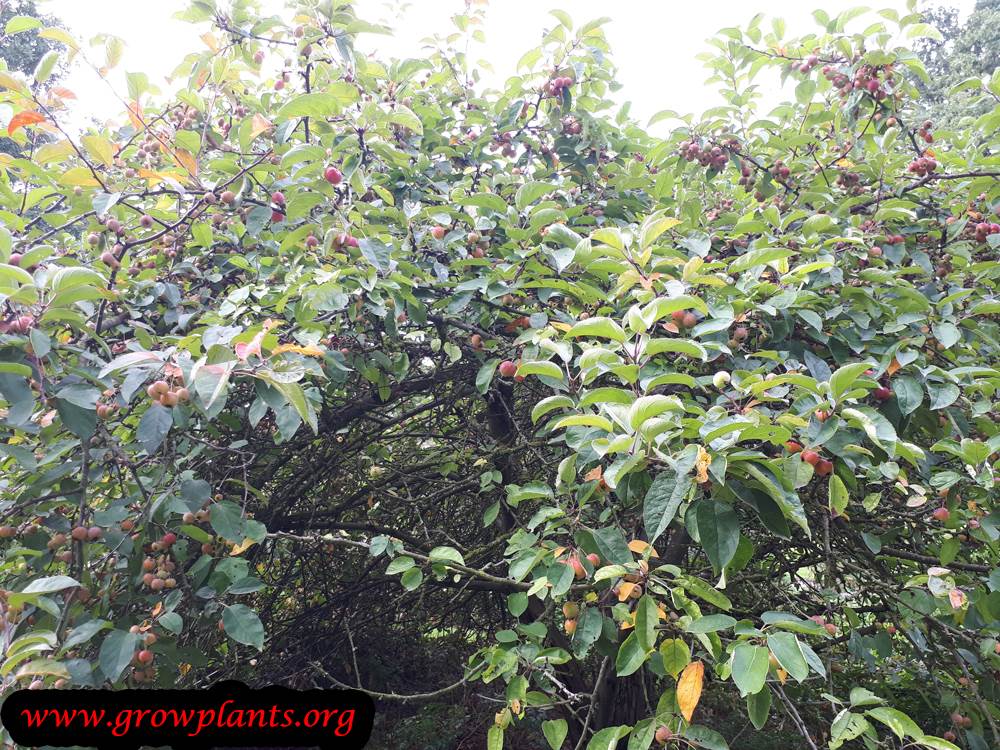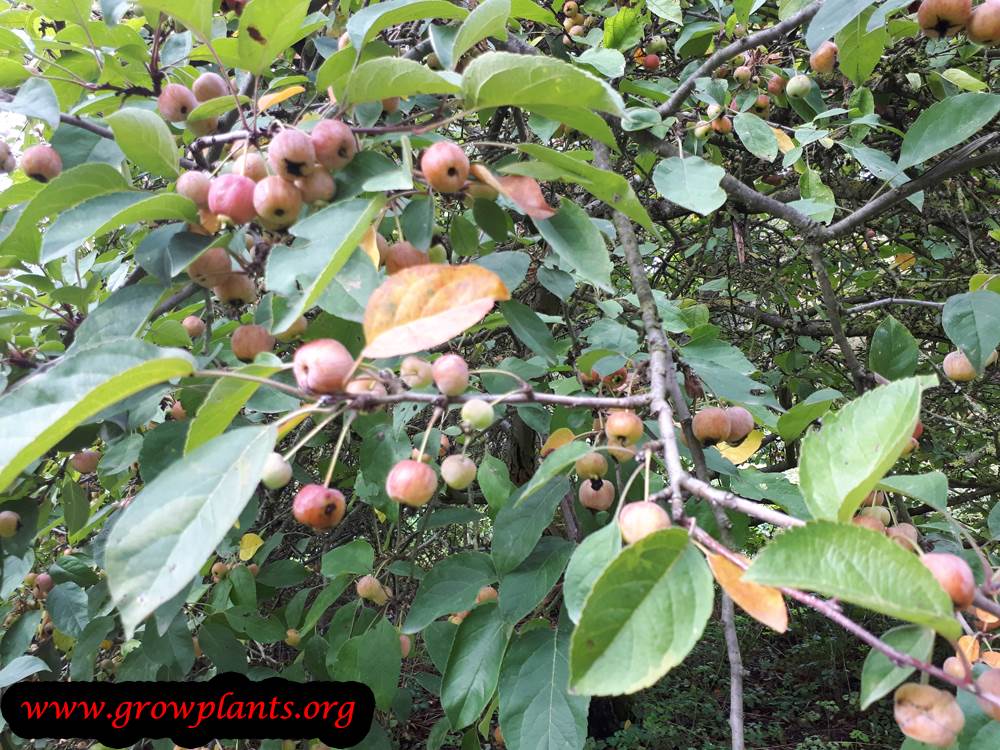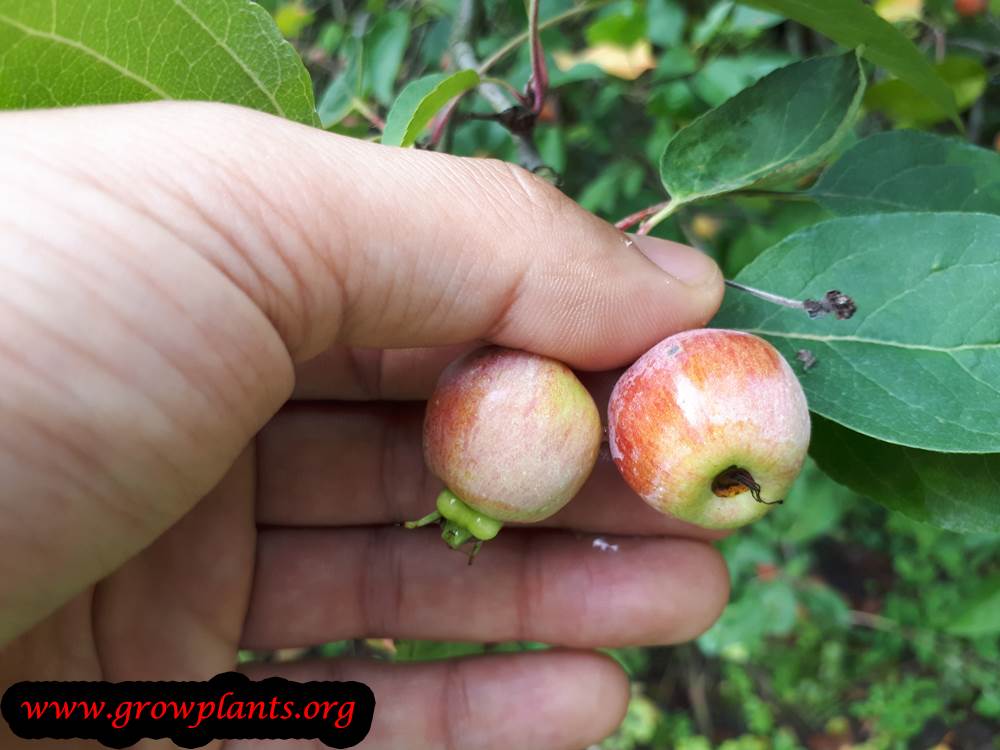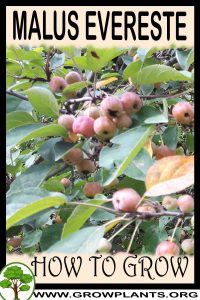
Malus Evereste grow and care – tree of the genus Malus also known as Malus perpetu Evereste or Crabapple, Malus Evereste perennial deciduous plant, fruits edible but mostly for the ornamental fruits and flowers, can grow in temperate and cold mediterranean or cold subtropical climate and growing in hardiness zone 4-9 and with the right care in hardiness zone 10a.
Malus Evereste flowers and edible fruits
Flower color pink or white or purple and in round shape and five to multi petals flowers.
Fruit color is white-green the peel can be yellow, orange, pink or more than one color.
Malus Evereste for sale – Seeds or Plants to Buy
How to grow Malus Evereste growing and care:
Chilling hours or cool winter (depend on the cultivars), if the tree attack in the beginning of the winter need to collect all the leaves and the fruit from the ground, cut all the infected branches.
What is the best way to start growing?
Plant, seeds
Is it necessary to graft in Malus Evereste?
Yes
Difficulties or problems when growing:
Very sensitive to pests and disease
Planting season:
Winter to spring and possible in summer but less recommend, when planting bare roots winter to early spring after this it might die
Pests and diseases:
Aphids, Borer, mite
Pruning season:
End of the autumn to beginning of the winter, but if there isn’t a lot of fruits better after the fruits season
How to prune:
Prune the week branches and dead, crossing branch, in order to get bigger fruits better to reduce the buds in order to get bigger fruits, old stems, reduce the amount of branches and need to take care that all the fruits will get enough light
Size of the plant:
2-7 m, 6-21 feet
Growth speed in optimal condition:
Medium growing
Water requirement:
Average amount of water / Big amount of water
Light conditions in optimal condition for growing:
Full Sun / Half Shade
Is it possible to grow indoor as houseplant?
No
Growing is also possible in a planter, flowerpot, containers:
Yes, in containers need to keep the plants small, start with pot that will be 20-50% more than the root ball, bigger the plant smaller the percentage, every time that the tree arrive to full capacity need to switch to bigger until arrives to desirable size, better to use this method because the soil lose the viability over time and it’s efficient of care for the tree, when the plant big need to switch part of the soil, drainage it’s important and need to make holes and to use peat soil and maybe some lava grit in the bottom or something like that, put a bottom for the container and when water the plant let it fill the bottom but also need to dry in the same day.
Blooming information
Bloom season:
Spring
General information about the flower
Pink or white or pink with white flower in the size 3-4 cm
Thinning the bloom:
The first two years recommend
Pollination is done by:
Bees
Edible Fruit
Fruit harvest season:
Summer / Autumn
Fruits pests or diseases:
Birds, mite, fruit fly
What can be done with big quantities of Malus Evereste fruits?
Eaten raw, baked, cake, juice and more, fruits leather
Work requirements on the fruit:
Cover the tree with net or protect the fruit against fruit fly
How long does it take to bear fruit?
3-4 years
Scientific name:
Malus
Alternative names
malus everest
Categories
| Blooming Seasons |
|
|---|---|
| Edible Parts |
|
| Culinary uses |
|
| Flower colors |
|
| Climate |
|
| Harvest Season |
|
| Ornamental parts |
|
| Plant growing speed |
|
| Plant life-form |
|
| Plant Uses |
|
| Planting Season |
|
| Plants sun exposure |
|
| Watering plants |
|
| Hardiness zone |
|


